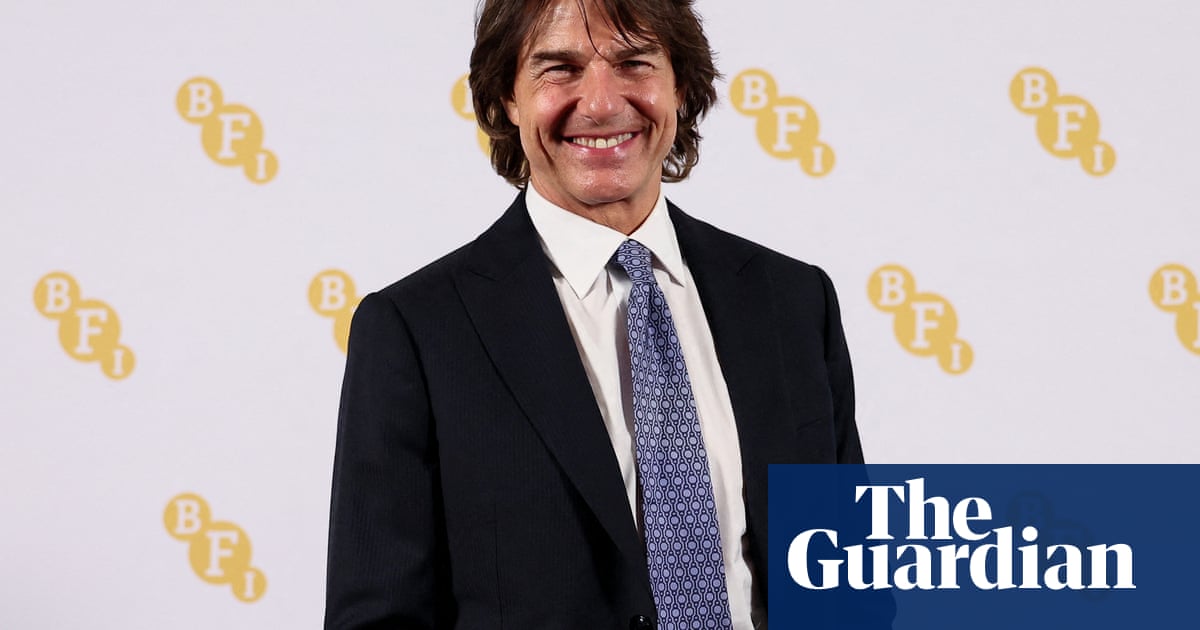From sleuthing around the world as Ethan Hunt in the Mission Impossible films to whizzing through the skies as “Maverick”,Tom Cruisehas always known the difference a team makes.
Now, the Hollywood superstar has told fledgling thespians to take heed of this approach on set and to understand the work of those behind the scenes who help make movie magic.
Speaking in central London on Monday as he received a British Film Institute fellowship, he criticised film schools for failing to teach young actors about the tools that help them command the screen and commended Hollywood legends Jack Nicholson and Marlon Brando for understanding the varying elements of the art form.
He said: “It is important to understand the tools around you. There is tech. It is like understanding the stage as an actor but for a lot of artists it is not taught in film school: how to understand the lens and what it can do, and why there is eye movement and recognise the effect it has.
“I always tell actors: spend time in the editing room, produce a movie, study old movies, recognise what the composition is giving you, know what those lenses are, understand the lighting and how to use it for your benefit. Understand the art form to that degree. Brando absolutely understood lighting; all the greats did.”
Cruise, 62, said that after scoring his breakout role as Joel Goodson in Risky Businessin 1983, which went on to be a box-office and critical smash, he leveraged that success with the producers of Top Gun to gain more of a say in the film-making process.
“I negotiated a deal where they had to allow me into every production meeting and to see every aspect behind the scenes,” he said. “This is when I started to get more creative controls.”
He also paid tribute to Briton Tony Scott, who directed Top Gun and Days of Thunder, saying working with himhad been an “amazing experience”.
“What he accomplished with those jets on Top Gunwas extraordinary and also [with cars] on Days of Thunder. He changed aerial photography, and the way you see motorsports being filmed today is because of Tony Scott. What an artist he is.”
Cruise also mentioned working with people who “didn’t know how to make movies”, mentioning his experience starring in the critical and financial failure Losin’ It in 1982.
“The quality wasn’t there nor was the intention to make a great film,” he said of the comedy directed by Curtis Hanson. “It was the first time I realised that some people didn’t know how to make movies.”
Cruise made headlines on Sunday after he was spotted on the roof of theBFIImax building wearing a tuxedo. Mission: Impossible – The Final Reckoning, the eighth film in the franchise, is released on 21 May.
